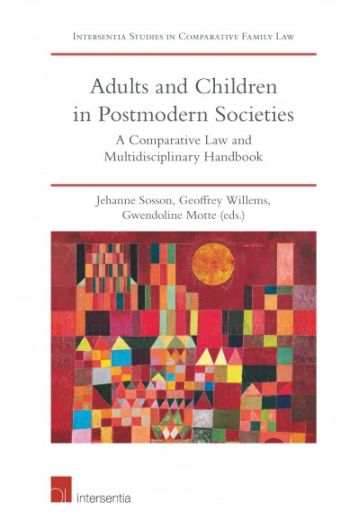Adults and Children in Postmodern Societies
ISBN13: 9781780685977
Published: April 2019
Publisher: Intersentia Publishers
Country of Publication: UK
Format: Hardback
Usually despatched in 1 to 3 weeks.
Adults and Children in Postmodern Societies provides a critical analysis of the different ways in which the law can recognise and protect relationships between adults and children in postmodern societies which are characterised by increasingly diverse family configurations. The book focuses of six fundamental questions:
- How does the law deal with the changes occurring in what is still referred to as the ‘traditional’ family, such as for example anonymous childbirth, paternity disputes, shared custody?
- How does the law recognise and protect families conceived with help of assisted reproduction techniques, such as IVF, surrogacy, anonymous or non-anonymous gamete donation?
- How does the law recognise and protect families bound by de facto social or emotional ties, particularly in context of step-parents and step-children or foster families?
li>Which relationships between adults and children should be recognised and protected by law? Should there be restrictions based on couple status, gender or number?
- If relationships between adults and children should be protected, which legal tools should be used: legal rules, judicial discretion or contractual freedom?
- Which common analytical framework could be used to understand – and face – the legal challenges raised by the transformations of family relationships?
These questions are addressed in-depth by an international team of distinguished family law experts of 19 different jurisdictions (Algeria, Argentina, Australia, Belgium, Canada, Democratic Republic of the Congo, England and Wales, France, Germany, Ireland, Italy, Japan, Lithuania, the Netherlands, Romania, Spain, Switzerland, Sweden and the USA), covering the current state of affairs, foreseeable legal developments and thought-provoking reflections. The legal perspective of the national reports is complemented by interdisciplinary perspectives from experts in history, anthropology, psychology and philosophy, making this book a unique and essential source for anyone working in the field.
